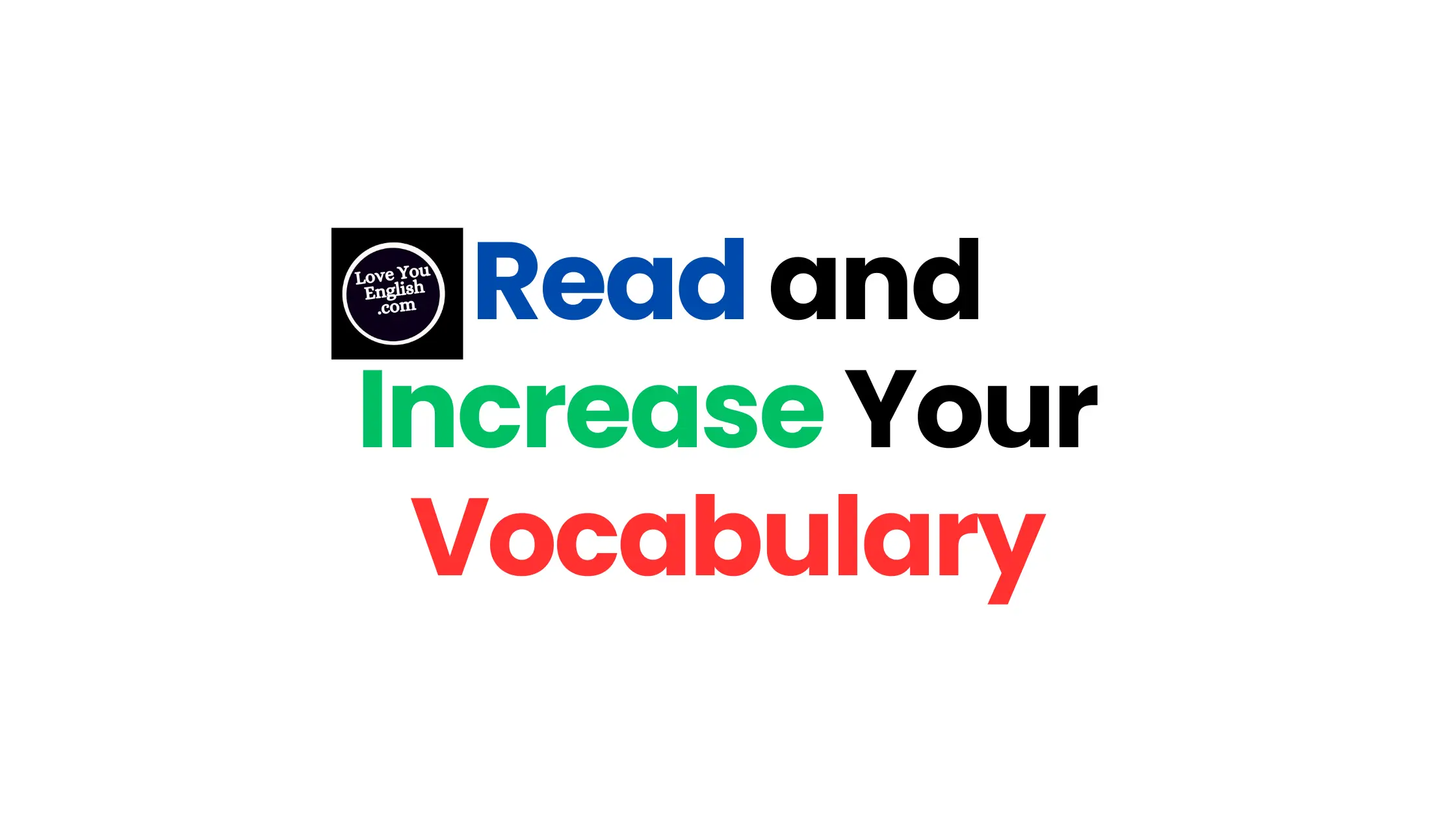How to Read and Increase Your Vocabulary
How to Read and Increase Your Vocabulary focuses on using reading as a powerful tool to build strong English vocabulary. Reading books, articles, and stories exposes learners to new words in context. This topic explains how to read actively, notice new words, understand meanings, and remember vocabulary effectively. Written in simple English, it is suitable for beginners, students, and ESL learners. This guide encourages smart reading habits that improve vocabulary, comprehension, and overall language confidence over time.
1. Choose the Right Books
Reading is a great way to learn new words, but choosing the right book is important. Here’s how you can pick books that help you learn:
- Read at your level: If a book is too hard, you might get frustrated. If it’s too easy, you won’t learn much.
- Pick books that interest you: If you love sports, read books about athletes. If you like stories, read novels.
- Try different types of books: Fiction, non-fiction, newspapers, and magazines all have different kinds of words.
Tip: Start with children’s books or short stories if you are a beginner. They have simple sentences and useful vocabulary.
2. Use a Dictionary
When you find a new word, don’t ignore it! Use a dictionary to find out what it means. There are two types of dictionaries:
- Physical dictionaries (books with word meanings)
- Online dictionaries (websites and apps like Google Dictionary or Cambridge Dictionary)
A good dictionary will tell you:
- The meaning of the word
- How to pronounce it
- Examples of how to use it in sentences
Tip: Try to guess the meaning of a word before you check the dictionary. This will help improve your understanding skills.
3. Keep a Vocabulary Notebook
Writing down new words helps you remember them better. Keep a small notebook or use a notes app on your phone. Write:
- The new word
- Its meaning
- A simple sentence using the word
- A synonym (a word with a similar meaning)
For example:
- Word: Curious
- Meaning: Wanting to know more
- Sentence: I am curious about space and planets.
- Synonym: Interested
Tip: Review your notebook every day for 5–10 minutes.
4. Read Aloud
Reading aloud is a simple but powerful trick. When you read aloud, your brain works harder to remember words. It also helps with pronunciation.
Tip: Read a short paragraph from a book or newspaper every day. Try to say the words clearly and correctly.
5. Learn Words in Groups
It’s easier to remember words when you learn them in groups. For example:
- Colors: Red, blue, green, yellow
- Feelings: Happy, sad, excited, angry
- Animals: Dog, cat, elephant, tiger
If you learn words this way, your brain connects them better.
Tip: Make flashcards with word groups and test yourself.
6. Use New Words in Your Daily Life
Learning words is not enough. You need to use them! Try these ways:
- Write a daily journal using new words.
- Speak with friends and use the words in conversation.
- Make sentences with new words every day.
Tip: If you learn five new words today, try to use them in a conversation tomorrow.
7. Play Word Games
Learning doesn’t have to be boring. Play games to improve your vocabulary. Some fun games include:
- Scrabble: A board game where you make words with letter tiles.
- Crossword puzzles: Find words by solving clues.
- Word search: Look for words hidden in a grid of letters.
Tip: There are many free word games online and on mobile apps. Try them for fun learning!
8. Watch Movies and Listen to Songs
Movies, TV shows, and songs are great for learning new words. Watch with subtitles to understand better.
- English movies: Listen to how words are used.
- Songs: Learn new words through lyrics.
- Podcasts: Listen to English speakers and note new words.
Tip: Repeat the words you hear and try to use them in your daily life.
9. Read Different Materials
Don’t just read books. Try other reading materials to learn different words:
- Newspapers (for formal and news words)
- Magazines (for casual and fun vocabulary)
- Comics (for dialogues and expressions)
- Online blogs (for everyday words and ideas)
Tip: Read a little every day. Even 10–15 minutes can help you improve.
10. Learn Common Prefixes and Suffixes
A prefix is a part added to the beginning of a word, and a suffix is added at the end. Learning them helps you guess meanings.
- Prefixes: “Un-” (unhappy = not happy), “Re-” (rewrite = write again)
- Suffixes: “-ful” (hopeful = full of hope), “-less” (careless = without care)
Tip: When you see a new word, check if it has a prefix or suffix to understand it better.
11. Join a Reading Club
Reading with others makes learning fun. Join a book club or online reading group. You can:
- Share new words you learn.
- Discuss meanings with others.
- Improve speaking skills by talking about books.
Tip: Find online reading groups on social media or join a local library club.
12. Set a Goal for Learning New Words
Make a goal to learn new words daily. Some ideas:
- Learn five new words every day.
- Read one page of a book daily.
- Use new words in a sentence every morning.
Tip: Keep a checklist and mark words you learn. This will motivate you to keep going!
Conclusion
Improving your vocabulary doesn’t have to be difficult. The more you read, the more words you will learn. Use these tips to make reading enjoyable and effective. Start small, practice every day, and soon, you’ll have a rich vocabulary that helps you express yourself with confidence. Happy reading!






